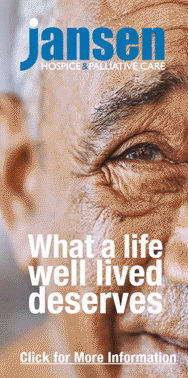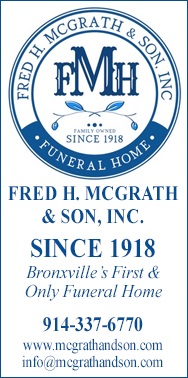Letter to the Community: Learning From Covid-19

By Georgia Nicole Veru, BHS '17, and Zoe Darmon, current students at Wesleyan University.
Editor's note: This article is the result of Georgia Nicole and Zoe's work in a fall course at Wesleyan University entitled "Global Change and Infectious Disease"
To The Community,
Nov. 25, 2020: What we’ve learned from Covid-19 should be applied to future daily life to mitigate the effects of infectious diseases to come. This virus has shown that unity and community responsibility are imperative to fighting infectious disease. What we aim to demonstrate are the individual actions that we can each take to prevent the spread of disease and possible government regulations that could ensure that societies stay safe.
At an individual level, there are three steps that we can take to better protect ourselves and others from becoming infected with disease: getting vaccinated, wearing masks, and social distancing when we are sick (even after Covid-19).
We can protect ourselves and others from future infectious diseases by ensuring that we are vaccinated. Vaccines have high levels of success if enough people get them. Due to vaccines, society is no longer ravaged by childhood diseases such as mumps, rubella, measles, and smallpox. We have been able to eradicate diseases through vaccines; smallpox, one of the world’s most consequential diseases was eradicated from the world in the 1970s.
In 2000, the U.S. was nearly free of measles, yet, due to hesitations by anti-vaxxers, there continues to be cases. From 2000-2015 there were over 18 measles outbreaks in the U.S.This is because unless a disease is completely eradicated, there will be a new generation susceptible.
Although vaccines are not 100% effective at preventing infection, if we continue to get vaccinated, we protect ourselves and those around us. If enough people are vaccinated, societies can develop herd immunity. The amount of people vaccinated to obtain herd immunity depends on the disease, but if this fraction is obtained, the spread of disease is contained. Through herd immunity, we protect those who may not be able to get vaccinated such as people who are immunocompromised and the tiny portion of people for whom the vaccine is not effective.
Although mask wearing was uncommon in the U.S. before 2020, in Japan, it is common to wear a mask when sick. In Japan, there is an ethic of containing germs, it is disrespectful to spread disease. Nearly everyone in Japan wears a face mask during cold and flu season- it is part of a social contract there.
In the U.S., wearing masks is met with resistance, some view it as a violation of rights.Going forward, mask-wearing when we are sick as a social/societal norm could prevent future infectious disease spread, even the common cold or flu. Other hygienic practices such as covering our mouths when we cough and making sure we wash our hands thoroughly also help mitigate spread.
These are tenets of the Germ Theory of disease, which states that diseases are caused by microorganisms that transmit from person to person;disease can be contained, if we can take responsibility for our health and the health of others.This includes distancing ourselves from others when we are sick, such as by not going to work or working from home when ill. However, many people cannot afford to risk missing a day's work, this could be incentivized and made possible by paid sick leave from the government.
Government actions in our ongoing fight against Covid-19 have illuminated problem areas that we must address in light of future epidemics. Employers need to play a larger role in maintaining staff safety. In the event of the next disease outbreak, jobs may need to allocate time for employees to get vaccinated and tested, even administering tests themselves.
Beyond Covid-19, regular temperature checks could place businesses a step ahead of potential outbreaks. Although these policies will impose considerable costs on businesses, they will undoubtedly ensure the safety of both workers and clients. The overall decrease in uncertainty that would result from having a federally-supported framework in place would lead to better work performance and trust, in both employers and the government.
We must remember that businesses are responsible for both employees and patrons, thus better protective services for one will lead to the safety of the other. In this context, contact tracing has been a failure due to limited workers and response rates.As we prepare for future epidemics, contact tracing will be essential in mitigating potential outbreaks.
In addition, the government must address the economic side of disease outbreaks. Although minimum wage and paid sick days have been highly contentious topics, given their variability amongst states, there is evidence that labor policies that increase economic security lead to higher life expectancy. Thus, the economic sacrifice of federally increasing sick days and minimum wage nationwide can be outweighed by the long-term benefits of better public health.
The government also needs to address the paradigm shift, as Witt calls it, in court upholdings of vital public health regulations. American constitutional law has long granted state governments public health powers under Salus populi suprema lex (“the health of the people is the supreme law”), however tides have been moving towards disenfranchising states of this power. A new wave of judges have been contesting this tradition of “modest and careful judicial intervention” by attempting to “deprive states of the power to fight for the sick and dying in a pandemic.”With a lack of both federal mandates and federal powers addressing the problem, states are further stripped of powers. Should states wholly lose them, it will be left entirely to the government to either reinstate salus populi or handle emergent infectious disease response federally in order to save citizens.
Covid-19 is not our last battle to fight. Studies suggest that “a SARS-like epidemic could happen again,” not to mention the multitude of diseases that could emerge from domesticated and wild animals into humanity. Personal and federal protective actions must be implemented before the next infectious disease outbreak.
Although blame has been placed on both individuals and the government, epidemic preparedness is not a mutually exclusive issue - both entities must work towards the goal of ensuring safety and health for all.
Editor's note: MyhometownBronxville does not fact-check statements in letters to the editor, and the opinions do not necessarily reflect the thinking of its staff. Its objective in publishing letters to the editor is to give air to diverse thoughts and opinions of residents in the community.
Letters Directory
Bronxville is a quaint village (one square mile) located just 16 miles north of midtown Manhattan (roughly 30 minutes on the train) and has a population of approximately 6,500. It is known as a premier community with an excellent public school (K-12) and easy access to Manhattan. Bronxville offers many amenities including an attractive business district, a hospital (Lawrence Hospital), public paddle and tennis courts, fine dining at local restaurants, two private country clubs and a community library.
While the earliest settlers of Bronxville date back to the first half of the 18th century, the history of the modern suburb of Bronxville began in 1890 when William Van Duzer Lawrence purchased a farm and commissioned the architect, William A. Bates, to design a planned community of houses for well-known artists and professionals that became a thriving art colony. This community, now called Lawrence Park, is listed on the National register of Historic Places and many of the homes still have artists’ studios. A neighborhood association within Lawrence Park called “The Hilltop Association” keeps this heritage alive with art shows and other events for neighbors.
Bronxville offers many charming neighborhoods as well as a variety of living options for residents including single family homes, town houses, cooperatives and condominiums. One of the chief benefits of living in “the village” is that your children can attend the Bronxville School.
The Bronxville postal zone (10708, known as “Bronxville PO”) includes the village of Bronxville as well as the Chester Heights section of Eastchester, parts of Tuckahoe and the Lawrence Park West, Cedar Knolls, Armour Villa and Longvale sections of Yonkers. Many of these areas have their own distinct character. For instance, the Armour Villa section has many historic homes and even has its own newsletter called “The Villa Voice” which reports on neighborhood news.
Village of Bronxville Administrative Offices
337-6500
Open 9:00am - 4pm excluding holidays and weekends
Bronxville Police Department
337-0500
Open 24 hours
Bronxville Parking Violations
337-2024
Open 9:00am - 4pm excluding holidays and weekends
Bronxville Fire Deparment
793-6400






